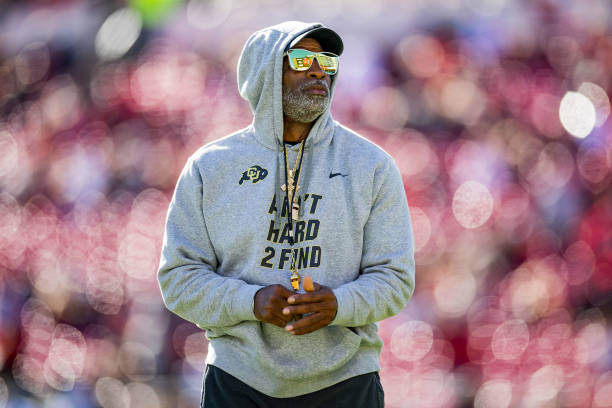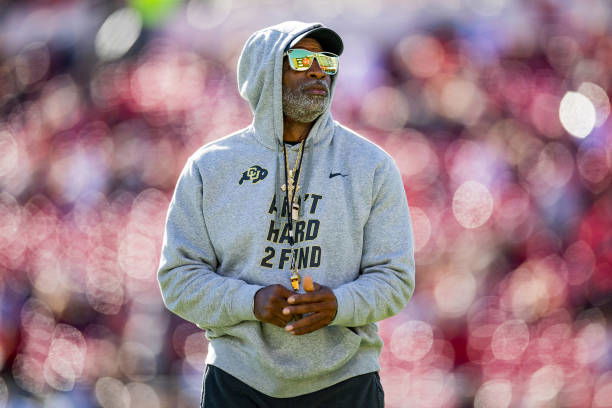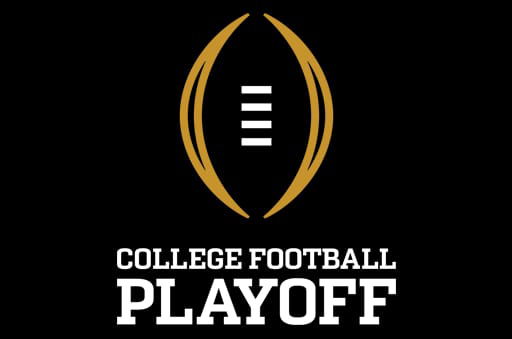
Getty
(Photo by John E. Moore III/Getty Images)

Getty
(Photo by John E. Moore III/Getty Images)

Getty
(Photo by John E. Moore III/Getty Images)

Getty
(Photo by John E. Moore III/Getty Images)
Ever heard coaches emphasizing their desire to win games? Take ASU’s Kenny Dillingham for instance. He said, “Everybody wants to win now, and I want to win now, and trust me, it’s much more fun to win than lose.” OSU’s Ryan Day is along the same line—“You’re here to win every single game… You don’t want it any other way.” And of course, Colorado’s Deion Sanders was unapologetically straightforward when he said, “I want to win, certainly that. You’ve got to be an idiot if you don’t want to win in life, or you don’t want to win as a coach. That is just stupidity if you don’t want to do that.” Well, everybody wants to win. And that’s why USC’s Lincoln Riley is doing what’s best for the Trojans.
Watch What’s Trending Now!
When Joel Klatt joined The Herd with Colin Cowherd on May 29, he tossed a flare into the heart of college football’s playoff model. Talking about USC’s decision to exclude their rivalry game with Notre Dame from their schedule, he said, “They are doing what everyone does in this sport, which is they make decisions that are in their own self-interest, and I’m not against that.” But here’s where he called out the problem.
“I am saying that the model is what’s broken,” he said, dropping a hammer on the committee-driven playoff structure that’s turned schedule-building into risk management.

Programs like USC, once proud of their Power Five gauntlet, are now pulling punches. Why? “Because what the committee has done during the course of their tenure, as in influencing college football through the 14 playoff and even now, last year in the 12-team playoff, is that they have reinforced that it’s better to just win than to go play a difficult schedule,” Joel Klatt said. Wins get rewards, not war stories. That’s the way college football has become.
For the last decade, USC has averaged more Power Five games than anyone in college football. And their move to the Big Ten in August 2024 only put more pressure on their schedule. “So if you’re USC, which has traditionally played one of the more difficult schedules in the country… When they make this decision (to not play Notre Dame), I can’t fault them for it,” Klatt said. “I don’t love it, but I can’t fault them for it.” And that’s not just bad optics. It’s a structural flaw. And Klatt even has a solution to tackle it…
“My argument would just be we need to go to an access-based model for the college football playoffs so that we know the avenues of how we can qualify for the playoff spots, which will lead to these games not being as penal, in particular in the non-conference.” The bottom line is simple. Earn your slot; don’t get picked for it. Then came the discussion about Deion Sanders.
Will Deion Sanders fare well in 2025?
It’s Year 3 for Deion Sanders in Boulder. The first two years, he went 4-8 and 9-4 while having his sons, Shedeur Sanders and Shilo Sanders, as well as his unicorn, Travis Hunter, on board. So, people naturally feel skeptical about 2025, as he’ll be playing without them, especially Shedeur, for the first full season in his coaching career after their NFL departure. He’s doing well in the big league, by the way. Interestingly, Joel Klatt isn’t in panic mode. “I don’t see them taking a huge step back,” he said. “Maybe a small one.”
The CFB analyst lauded the Buffs’ portal grabs, like Liberty QB Kaidon Salter and USC flip freshman Julian Lewis. There’s a warning though—“If you look at right now what Vegas says about the team that they think is the worst team in the Big 12, the over-under is set at five and a half. If you look at the team that they think is the best team in the Big 12, the over-under is set at 8 and a half. So you’ve got basically 14, 15, 16 teams within three games of one another. That’s what I think is the most difficult part of the Big 12.” In Boulder, the ceiling is nine wins for 2025, while the floor is four wins.
But in the bigger picture, Joel Klatt’s warning is clear. College football’s system rewards safety over strength. And until that changes, chaos will keep beating competition.





